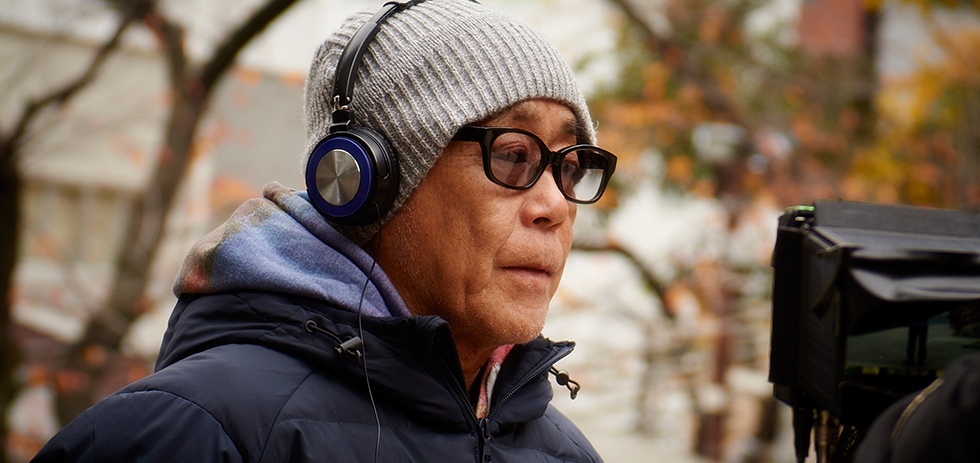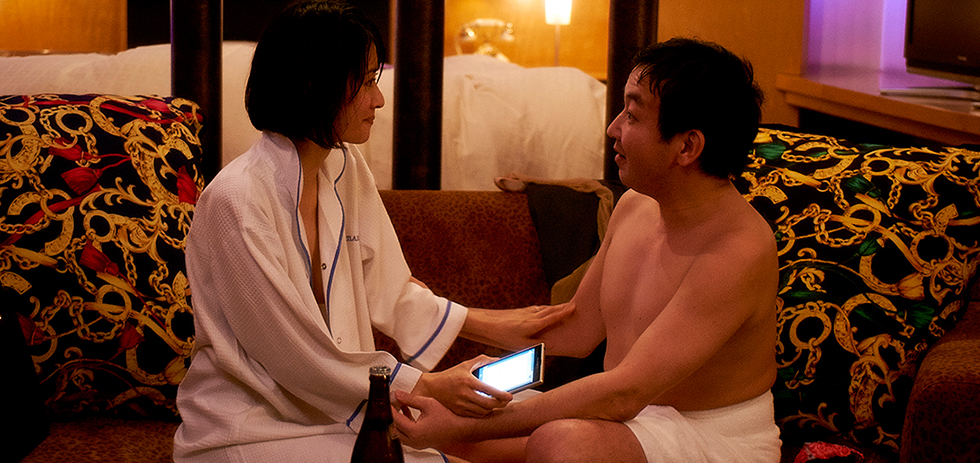In Kabukicho Love Hotel, Ryūichi Hiroki gives audiences a look at underbelly of Japan’s nightlife, returning to a venue that defined his earlier career as a ‘Pink Film’ director. We caught up with Hiroki at Sydney Film Festival to discuss his extensive output, portraying a different side of Japan, and working with an actress who didn’t speak a word of Japanese when we started work on the aforementioned film.
You’ve been involved in almost 40 feature films, is that right? What drew you to your latest work – and what fuels such an incredible output for you?
I always want a challenge with a new film. So I’m not trying to keep influences from past films I’ve made, and I’m trying to make something new in order to challenge myself.
I guess in terms of challenging yourself with Kabukicho Love Hotel; in in researching the film and designing the characters did you visit a lot of different Love Hotels or was this based more on a particular one – or did you already have experience with them in the past?
In terms of knowing about love hotels, I’ve known about them very well – as a passion from my private life. I’ve also used love hotels for many of my shoots in the past, so I didn’t have to do any research on love hotels itself.
The film is set in Tokyo, despite love hotels being a nationwide phenomenon – was there a reason you set the film here?
I chose Kabukicho in Tokyo because it’s such an interesting place, where people from such a wide array of occupations gather together in the same location. Another thing is, Kabukicho has been changing a lot, and I partially wanted to document the place before it changes dramatically.
I read about a lot of the laws that were coming into place shutting down love hotels and changing the face of Kabukicho, yeah.
A lot of those changes have been happening even without the laws.
How did you end up working with Lee Eun-Woo, as an actress who didn’t speak any Japanese when you started work on the film?
She spoke in Japanese when we started filming, but to find her… I actually wanted to find a Korean actress in Japan first but I couldn’t find anybody. But eventually eventually a friend of Kim Ki-Duk, who is a Korean director, who worked with Lee Eun-Woo before – and went to the Venetian Film Festival, where I was introduced to her.
It seems a lot of your films are concerned with Japan’s lesser seen side: The Akihabara massacre, prostitution and you’ve worked in the pink-film industry. It reminded me lot of this phrase from Shohei Imamura where he said he was concerned with the lower half of the human body and the lower half of the social structure, and I was wondering if you’ve been inspired by other directors in Japan and if not, what draws you to that other side of Japan?
On a subconscious level, I might be getting an influence from other directors in the past, but at the same time, I’m more thinking about how Shinjuku is often the area that I go out and hang out. I want to depict what I’ve been absorbing in that area where I’ve hung out in the past and that’s probably a bigger influence for me in Kabukicho Love Hotel.
You also released Otoko No Issho in Japan this year – could you tell me a bit about that film?
In English the film is called Her Granddaughter and it went to Germany for the – film festival – and received the audience second prize. Because Kabukicho Love Hotel and this film were often going to be compared, I tried to make Otoko No Issho quite different from the other in terms of the scenes and how I shot. Regardless, Kabukicho Love Hotel regardless gets more attention than the other film and I would be happy if Her Granddaughter got more attention, as I feel it is as strong of a film.
I was curious as towards the transition from being a pink film director to becoming a more mainstream filmmaker, and how that took place, and I was curious as to whether you thought that previous work had been useful in different ways for how you navigate cinema today?
It has been quite useful, that experience working in pink films before. It’s about sex scenes and the relationships between men and women that I’m still interested in depicting in my popular films, so it’s really useful. You see, in terms of shooting a pink film, you’re working with a very low budget – around $30,000 – and you have to shoot the film in around 3-4 days. I wanted to have more of a budget to shoot films, and that was one of the reasons that I wanted to make the transition from that industry to the more popular film industry. I think pink films are more like a business card for me. I guess a synopsis of a film is something people can’t already see, but with pink films they’re already shot – so it’s like a business card, everyone knows and can watch it. So for a scriptwriter its really a good way to get to know me, for my career.
Just to wrap up, I was curious about what you were planning on working next, and if you had anything?
For this year I haven’t shot any film yet, but in August there is a project that may go or may not go… it’s a bit iffy right now with the budget problem. But we’ll see.
Thank you so much for the interview.
Thank you very much.

